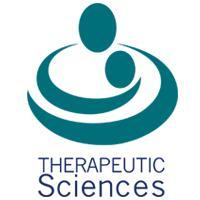.JPG)
-
Admission Requirements
School Leavers:
- A pass in Mathematics and English at level 4 on the Scale of Achievement for the National Senior Certificate. OR
- A pass in Mathematical Literacy at level 7 and English at level 4 on the Scale of Achievement. OR
- A pass in Mathematics and English at level 5 on the Scale of Achievement for the National Certificate (Vocational). OR
- A pass in Mathematics Higher Grade, or a minimum of 50% for Standard Grade. AND
- A pass in either Physical Sciences or Life Sciences at level 4 on the Scale of Achievement for the National Senior Certificate. OR
- A pass in either Physical Sciences or Life Sciences at level 5 on the Scale of Achievement for the National Certificate (Vocational). OR
- A pass at the Higher Grade, or a minimum of 50% on Standard Grade for one of the following subjects: Biology, Physical Science, or Physiology.
Holders of a three-year diploma:
An applicant who has been issued a mature age conditional exemption from the matriculation examination by virtue of being over the age of 23 years, or 45 years, as the case may be, admitted to a programme on condition that they fulfil the requirements of the undergraduate qualification within the period stipulated by the faculty concerned. Such fulfilment entitles the applicant to complete exemption from the matriculation exemption.
-
Course Modules
Culture and Identity / NRSE1006O / Credits: 10
An overview of aspects of culture and identity applicable to students and the patient, to practice sensitively and understand one’s viewpoints. It underlines the importance of culture and identity in healthcare. The topics to be covered include self-concept, spirituality, culture and diversity, norms, family dynamics and cultural competence.
Fees: R3 500Medical Sociology / NRSE1007O / Credits: 10
The student will gain awareness of the social and structural factors which influence health, healing, and illness. Emphasis is given to society’s perspectives on medicalisation, the Influence of the social environment on health and illness, and health and illness behaviour. We explore the use of complementary services; healthcare practitioners and their relationships with patients; and the influence of health technology.
Fees: R3 500Stratification and Differentiation in Healthcare / NRSE1008O / Credits: 10
We sensitise the student to the impact of stratification and differentiation in healthcare on patient outcomes. The module content will include stratification/differentiation according to self-concept, spirituality, culture and diversity, norms, family dynamics and cultural competence. These topics will be linked to patient outcomes. The module recognises potential challenges experienced during interactions with diverse patients and examines solutions to address these challenges in the healthcare context.
Fees: R3 500
Healthcare Communication / NRSE1009O / Credits: 10
NRSE1009O Get an understanding that the success of a healthcare system depends on communication and cooperation and that every member of that system needs to play a part in ensuring that all forms of communication they use are collaborative and constructive. It guides the student to use the principles of healthcare communication to work as a constructive member of the healthcare team and to use all forms of communication (written, verbal, online, social media, and mass media) to aid collaboration in meeting the goals of the healthcare system. The student will learn to understand, recognise and respond to the social and political dynamics that influence communication and collaboration.
Fees: R3 500Total Credits: 40
Total Fees: R14 000
-
Enquiries:
If you have any questions or would like to apply,
Please phone us on 0800 233 726 or send an email to enquiries@online.wits.ac.za
Download course brochure:



